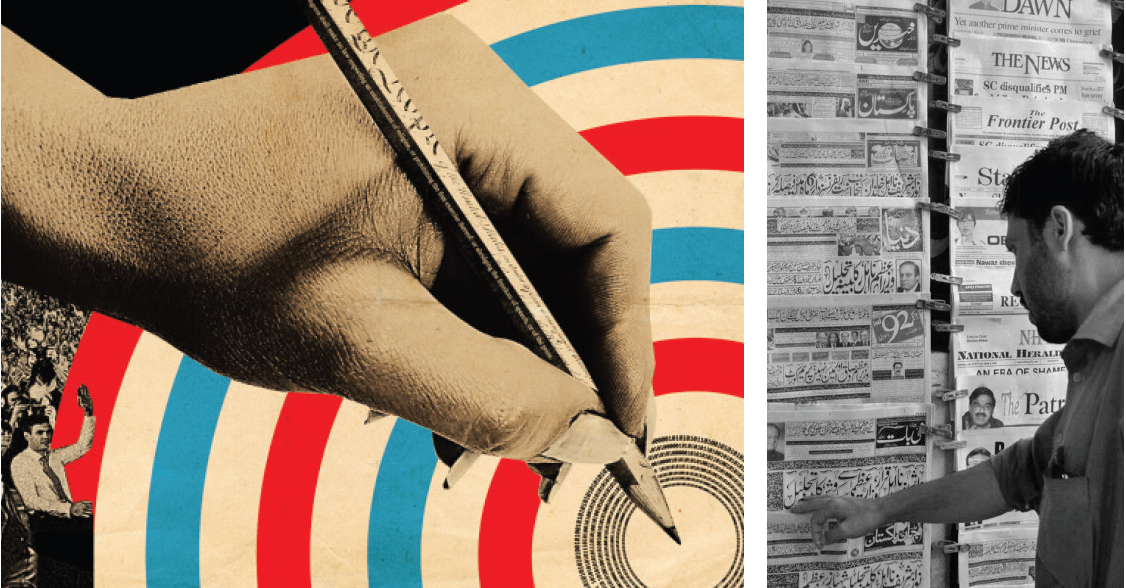Press Freedom is the backbone of democracy. Press Freedom Day, observed on May 3rd annually, highlights the fundamental principles of free press and pays homage to journalists who risk their lives to uphold truth and democracy. This day accentuates the importance of defending journalists’ rights and combating censorship and political repression. In absence of press freedom, authoritarian regimes thrive, and citizens are deprived of their right to knowledge and questioning.
Since its advent, democracy has always struggled to find press freedom footing in Pakistan. The state alternates between democratic, dictatorial and hybrid rule. Consequently, the country too, continues to oscillate between civil society’s quest for greater press freedom and a political reality in which the political-military elite retains broad control over the media. Pakistani legislation censors criticism of the military and government under the pretense of safeguarding journalists.
The 1960 Press and Publications Ordinance granted Pakistan’s government extensive control over the press, allowing it to ban publications considered harmful to national ideology or security. Journalists who criticised the government faced arrest, imprisonment, and torture, leading to reduced reporting quality and accuracy. Ziaul- Haq’s rule (1978-1988) also implemented strict censorship, granting the government unprecedented power to restrict any news considered provocative or unfavourable of the regime.
Established in 2002, the Pakistan Electronic Media Regulatory Authority (PEMRA) is primarily focused on regulating the content that media outlets transmit, rather than the media industry as a whole. Adopted in 2016, the Prevention of Electronic Crimes Act (PECA) is mostly used to stifle online free speech rather than combatting cybercrime.
In the 2021-passed Protection of Journalists and Media Professionals Act, protection is contingent upon reporters engaging in a specific ‘conduct.’ These vague restrictions expose journalists who violate the tacit boundaries set by the authorities to severe administrative and criminal penalties, including up to three years in jail.
In the absence of press freedom on print and electronic media, most journalists turn to social media to avoid archaic censorship laws. While traditional media outlets face challenges such as censorship and intimidation, social media platforms have offered an alternative space for expression. Social media journalists have often emerged as influential voices, filling gaps left by mainstream media. However, they, too, operate in a precarious environment, facing threats, harassment, and legal action for their reporting.
Press Freedom serves as a watchdog, exposing corruption, injustice, and human rights abuses. It fuels innovation and progress, driving societal change through investigative journalism and open discourse. Upholding Press Freedom is not only a moral imperative but also a cornerstone of democratic societies, safeguarding liberty and promoting a free exchange of ideas. However, there should be a balance in individual liberties with the need to prevent harm and maintain social cohesion. While freedom of speech is a fundamental right, hate speech poses a threat by inciting violence, discrimination, and marginalisation of vulnerable groups. Striking a balance requires nuanced approaches, acknowledging the importance of free expression while implementing measures to curb harmful speech.
Amid a dreary political landscape, despite the archaic censorship laws, journalists continue to play a crucial role in shaping public discourse, mobilising communities, and holding those in power accountable. Their work is essential for promoting transparency, democracy, and human rights in Pakistan. As the digital landscape evolves, ensuring Press Freedom for social media journalists becomes increasingly imperative for fostering an informed and engaged citizenry.
We survived censorship because, thank God, the governments have never been so efficient as to stop people from thinking.’ – I.A Rahman
The writer is our Editorial Assistant and an oral historian.



